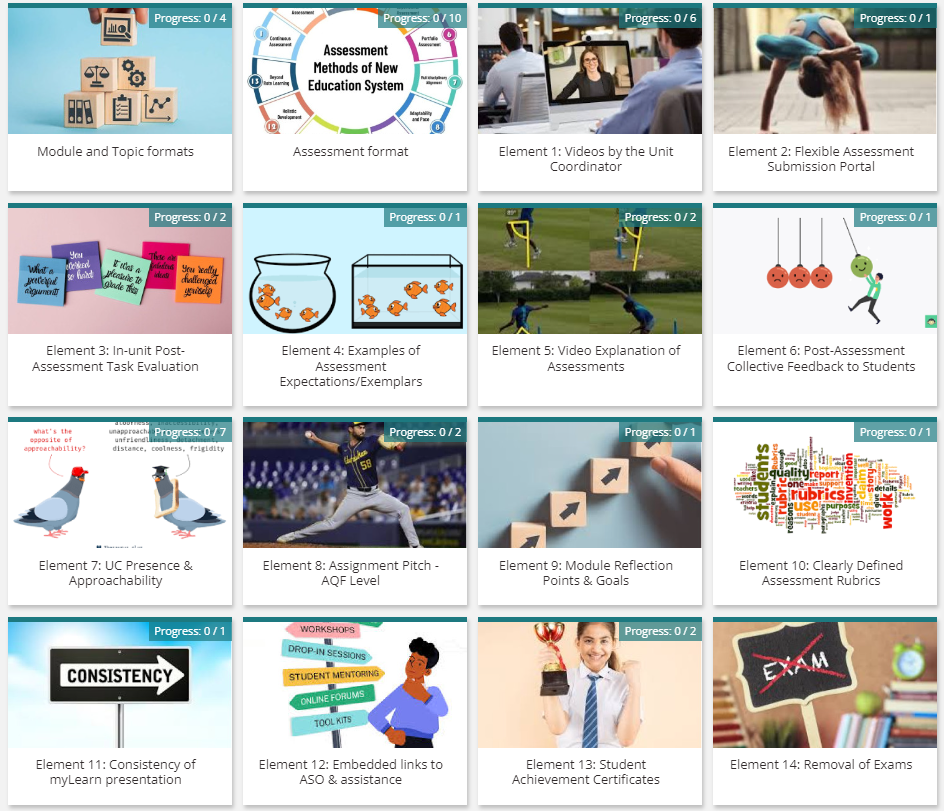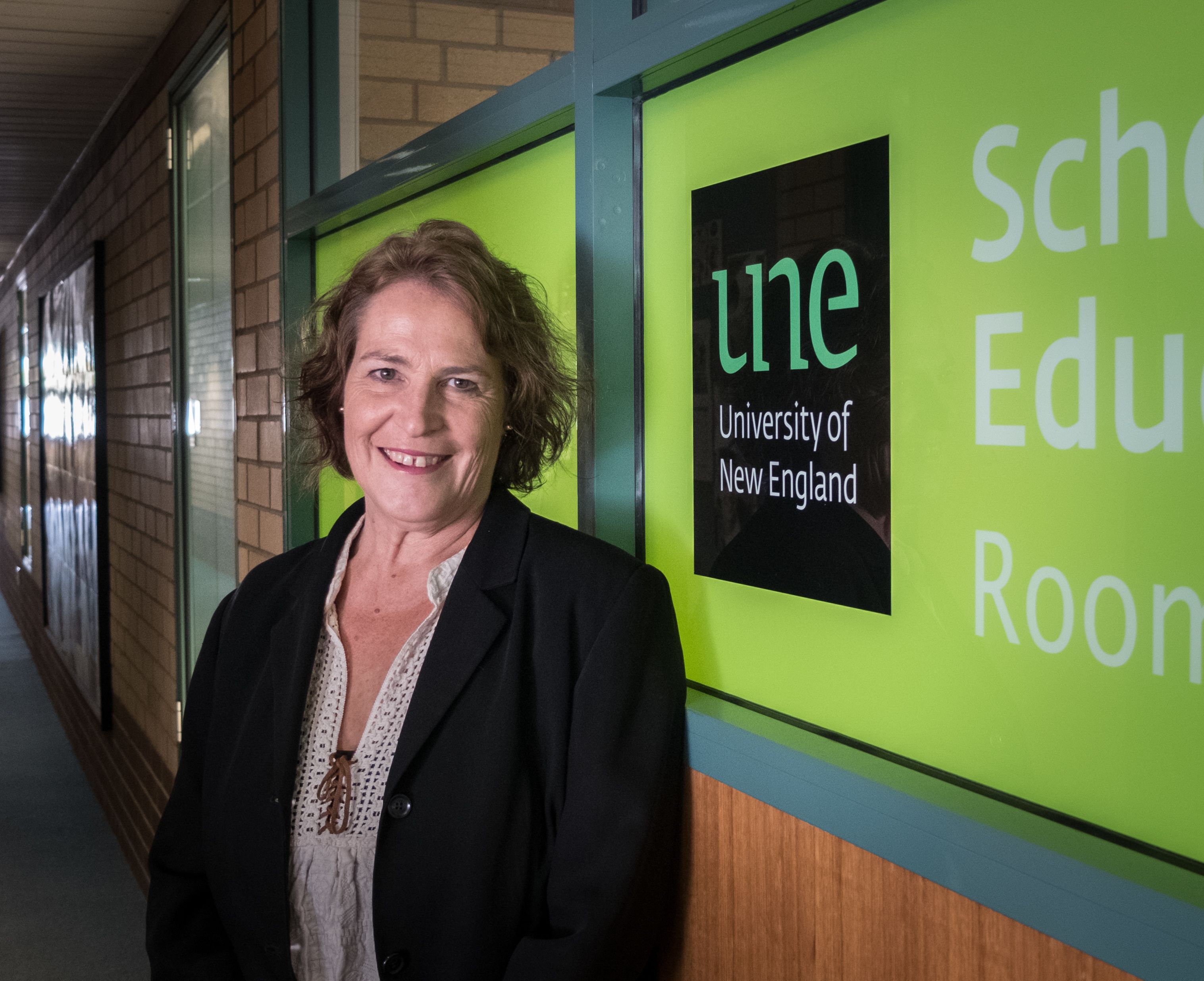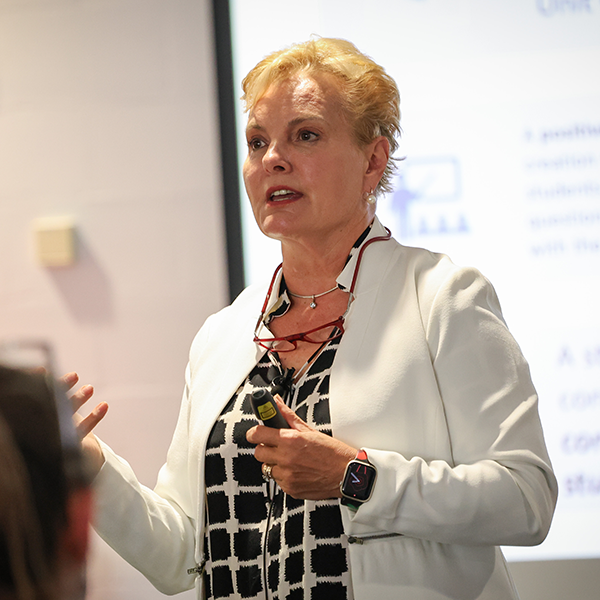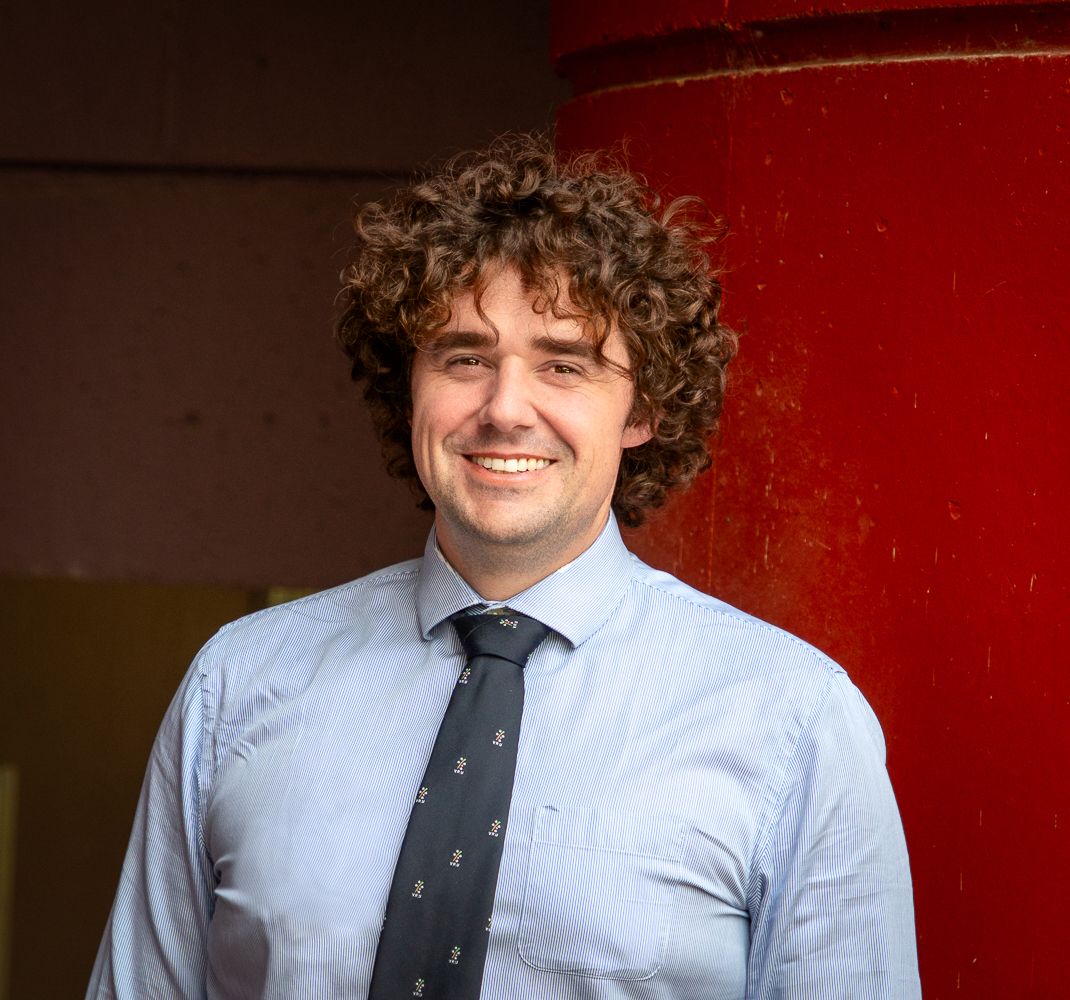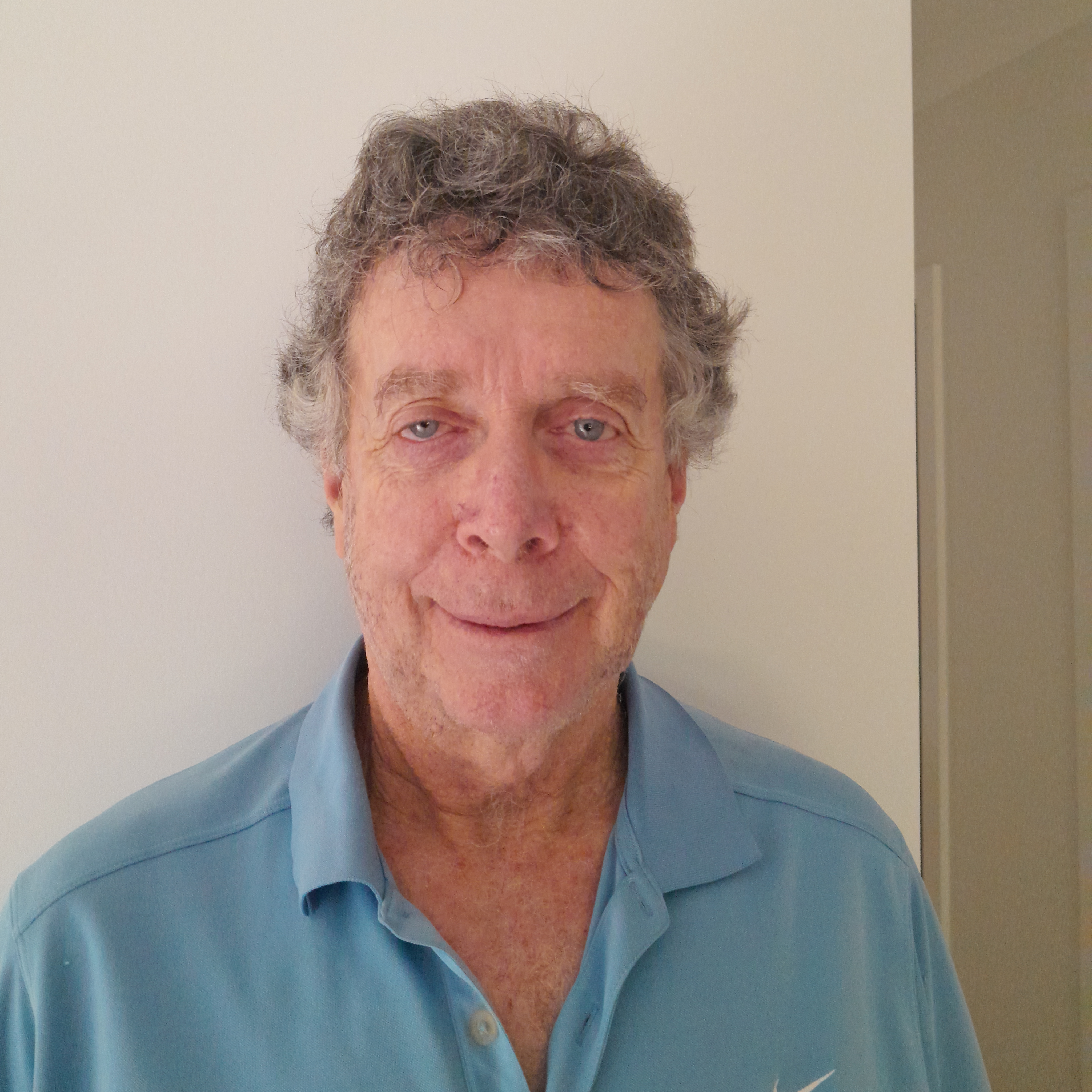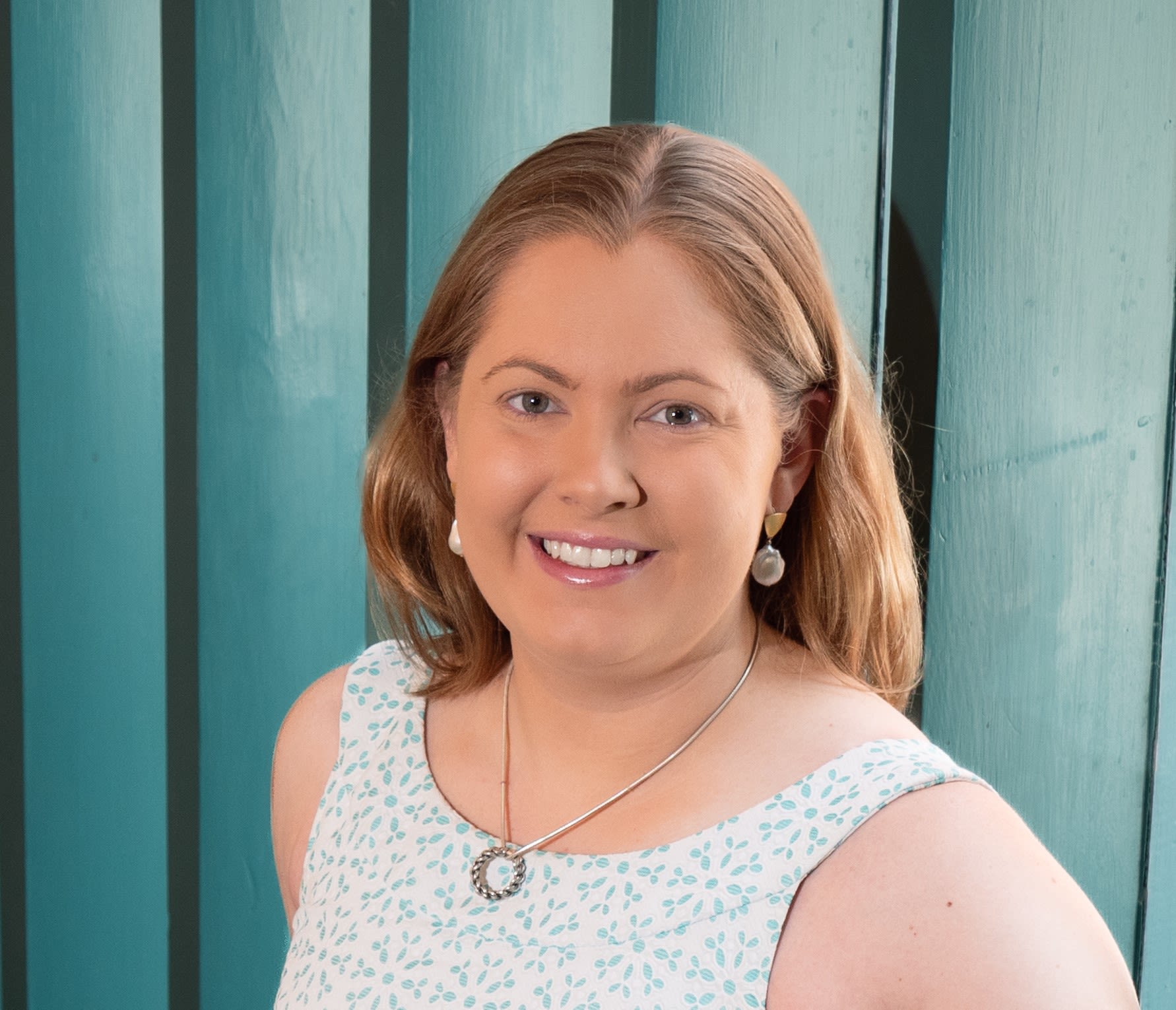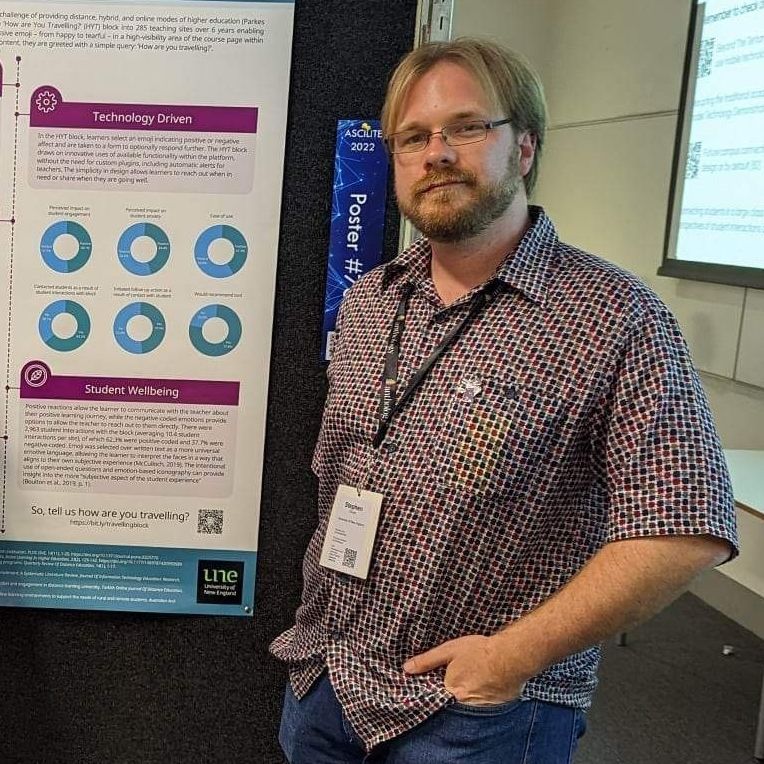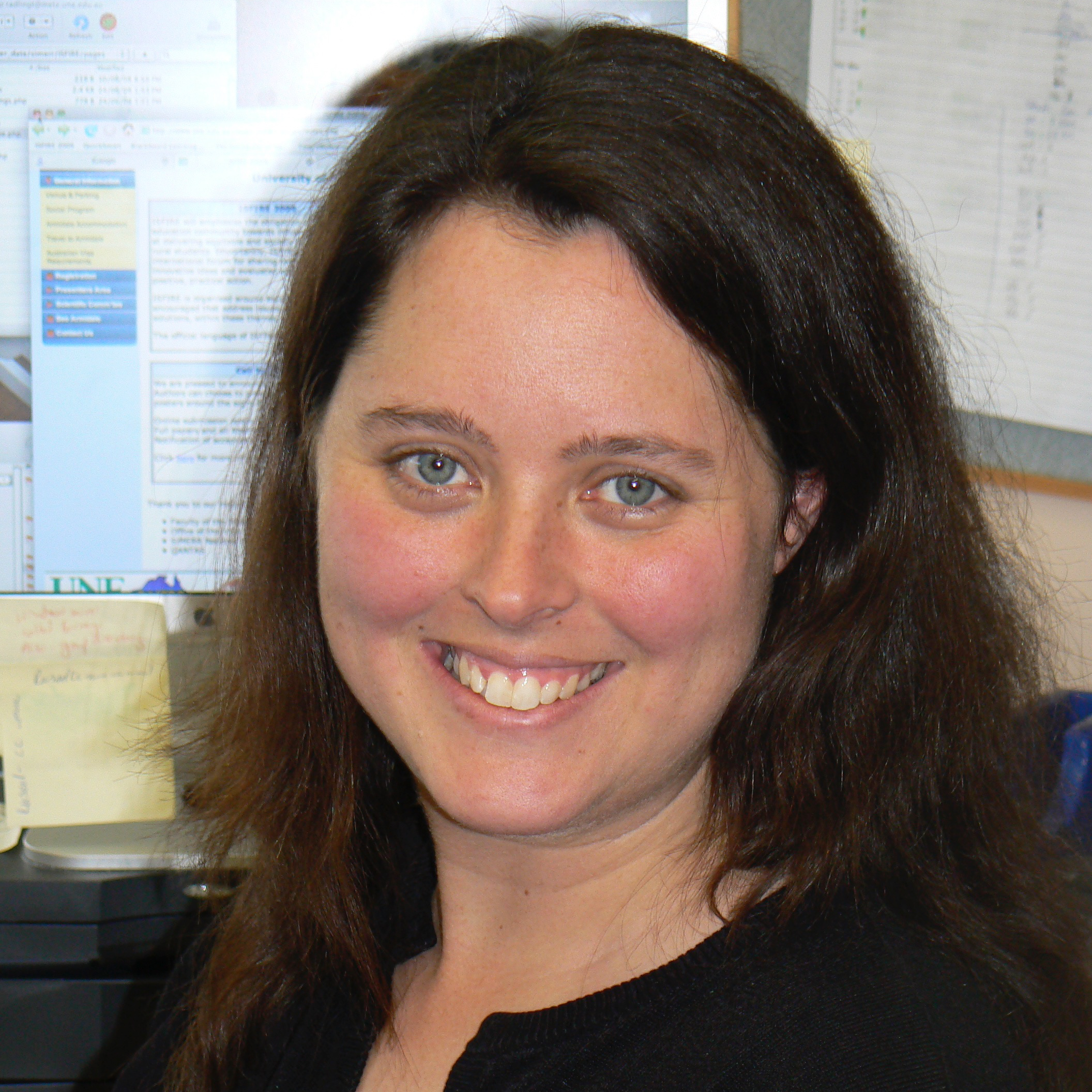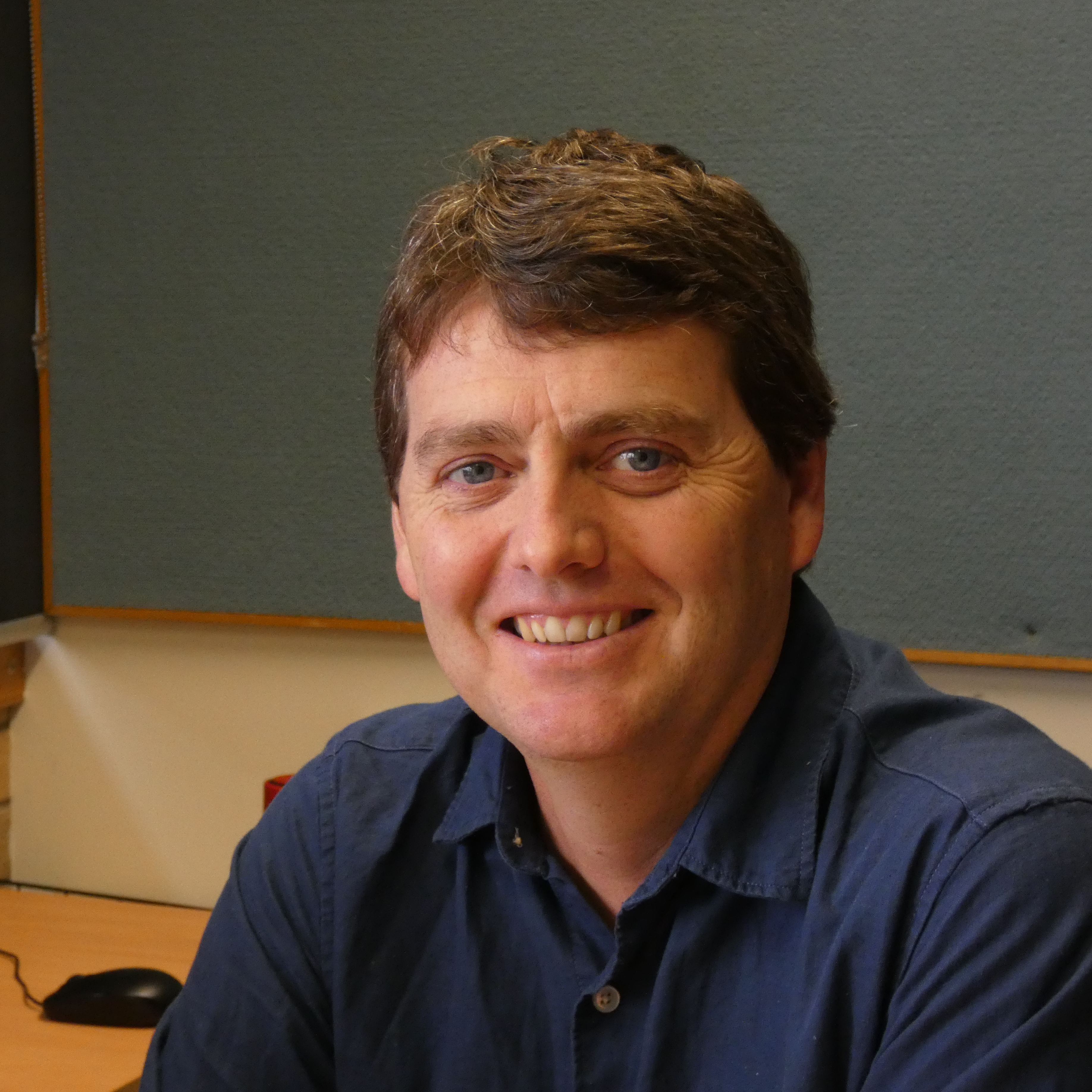TEACHING AND LEARNING
Facilitating, not gatekeeping
The UNE project transforming the student experience

When Associate Professor Ingrid Harrington, an inclusive education expert with UNE’s School of Education, stepped back into teaching first-year units in 2018, she realised many units were placing too high an expectation on students, and something had to change.
“Inclusive education in the teaching system is about understanding the student and putting them first. But when I stepped back into teaching first year university subjects after having taught third and fourth years, I found we were not practising what we preached.”
Taking her concerns to UNE School of Education’s Head of School, Professor Sue Gregory, she found the support she needed to bring her project to life – now known as the Commencing Student Success Project (CSSP).
“We have many students coming from diverse backgrounds, often with no prior tertiary experience in their family, but our unit outlines and assessments were using advanced academic language and setting performance expectations at a third and fourth year level.
“Our units were also overwhelming first-year students with things like competing assessment deadlines,” Ingrid says.
“There’s a really well-established body of literature on the first-year experience, that clearly tells us what works and what doesn’t,” Ingrid says.
While reviewing the literature, Ingrid was able to distill the research findings into 14 evidence-based elements (which she called 'basic elements'), that could be embedded in UNE’s School of Education units to improve the student experience.
The elements recommended in the project include improving clarity in assessment task expectations, improved flexibility and more interactive and visual elements.
A multidisciplinary team then helped to bring the Commencing Student Success Project together and implement it across the School of Education over four years.
Highly awarded
Four years into the project, the Commencing Student Success Project (CSSP) team has collected rich data to feed back to the unit coordinators responsible for implementing some or all of the 14 elements recommended.
"It’s been very loud and clear from 300 responses we get each trimester what our students want from us,” Ingrid says, "and that the CSSP has made a huge difference, increasing engagement and retention in units by up to 80 per cent."
– Associate Professor Ingrid Harrington
The project has won 10 awards to date, at university, regional and state level, and has now entered the national award arena.
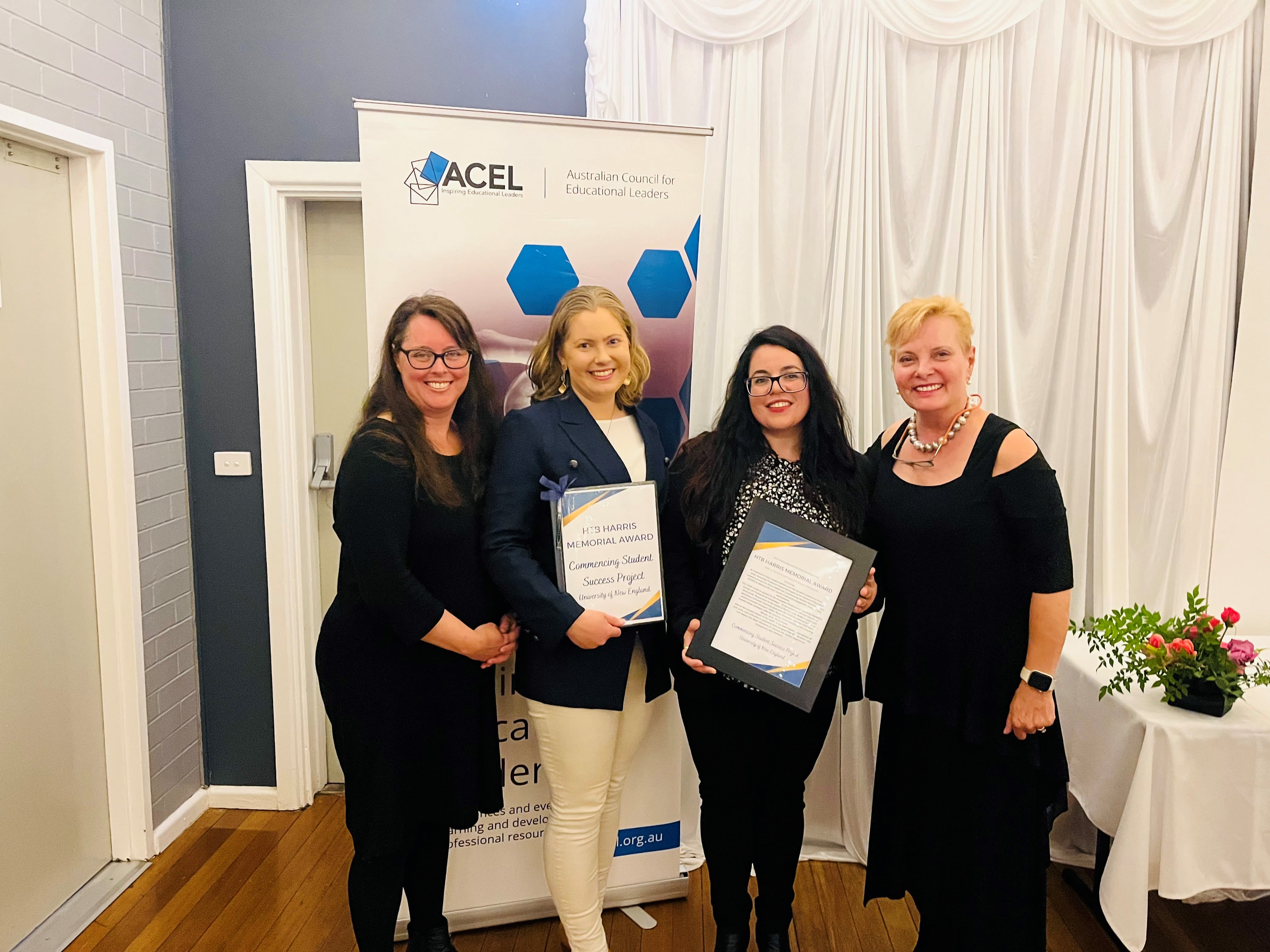
A Team effort
With the help of the Head of School, Professor Sue Gregory, Ingrid found the expertise across the School of Education to help design and implement the project to ensure its success.
“I wrote the program explaining the literature and using examples of how to embed the elements, and Sue recruited other expertise in the School of Education – including project officers to bring the pieces together and help get everyone on board," Ingrid says.
"Eventually, we also had learning designers to develop some really groovy things, like comic strips and all sorts of interactive elements.”
All unit coordinators at UNE can access advice through the student learning platform (MyLearn) on how to create engaging content and embed the CSSP basic elements in their units.
All unit coordinators at UNE can access advice through the student learning platform (MyLearn) on how to create engaging content and embed the CSSP basic elements in their units.
The basic elements
While there are 14 recommended elements in the project, Ingrid says even implementing just two will make a difference. But ideally, she says, unit coordinators will adopt at least the top five in their units:
- videos by the unit coordinator
- flexible assessment submission portal
- in-unit post-assessment task evaluation
- examples of assessment expectations
- video explanations of assessments.
The 14 'basic elements' that will improve the student experience and support in their learning units, as advised by the CSSP. All unit coordinators have ready access to advice for improving the delivery of their units and assistance for creating great interactive elements.
The 14 'basic elements' that will improve the student experience and support in their learning units, as advised by the CSSP. All unit coordinators have ready access to advice for improving the delivery of their units and assistance for creating great interactive elements.
"We really need to consider the pressures and frustrations that it takes to be a successful student of today, let alone environmental demands like work, health and family. What’s been missing from higher education is flexibility, beyond being able to apply for an extension for a student assessment, which often required lots of documentation and justification."
- Associate Professor Ingrid Harrington
The CSSP project team members have been available to deliver one-to-one sessions to unit coordinators across the School of Education to explain the 'basic elements' and how to implement them in learning materials to improve the student experience.
“One of the main changes has been making the unit coordinators more visible to students, including through the addition of video recordings from the unit coordinators, such as an introduction to each unit on MyLearn, our student learning platform, to explain what it’s about, and how it will benefit their degree,” Ingrid says.
This one improvement has had a big impact.
“One of the most popular changes has been the video recordings, certainly for assessments. Metrics show us that each student listens to the video explanation of the assessment a minimum of three times. Without that, there’s just a lot of reading.”
From literature to practice
“We tend to get stuck in a gatekeeping mentality at university – keeping rigidly to what students can and can’t do, without taking into account their experience and life situation, for example where they’re up to academically, and the commitments they’re trying to work around."
– Associate Professor Ingrid Harrington
“We needed to get back to what the literature talks about – and that’s less gatekeeping, and more facilitation. That means describing and showing students what they’re aiming for in an assessment, rather than just marking them at the end,” Ingrid says.
It’s no surprise then, that the most popular element of all that has been implemented in the School of Education has been a flexible assessment portal. The portal allows students to elect when they’d like to submit an assessment task within a defined period, sometimes allowing up to three weeks for submission.
“It gives students some sort of power and ownership in recognition of all the demands and pressures that they haven’t been afforded before," Ingrid says.
All unit coordinators across the UNE School of Education have adopted some or all of the 14 elements.
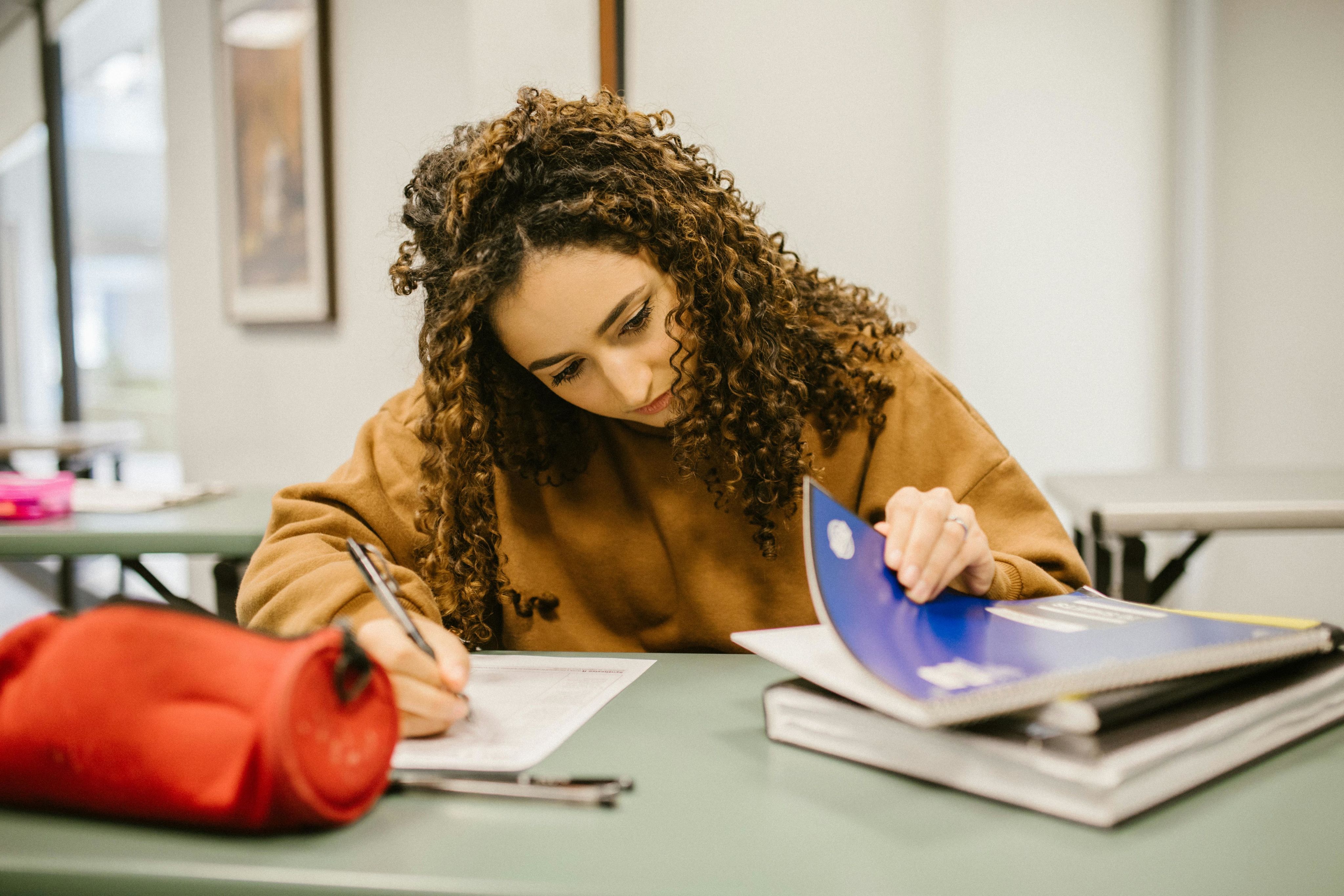
THE PROJECT TEAM
Professor Sue Gregory Head of School, Education
Associate Professor Ingrid Harrington says the project has only been possible with the unwavering support of School of Education's Head of School, Professor Sue Gregory.
This support has ensured the project could be adequately resourced over four years, giving the project the best chance of success. Sue says the project has encouraged School of Education academics to review the presentation of their units, the manner in which they present information, personalise their approach to students, and improve the overall student experience, engagement, and retention of students in their units.
"The success of the project has been impressive and has caught the attention of the broader university.
"It has influenced the overall academic, social and cultural experience of higher education in the School of Education and UNE more broadly."
Associate Professor Ingrid Harrington, project lead
Ingrid has been part of UNE’s Learners, Learning and Teaching Team in the School of Education for the past 21 years. Her research interests include improving retention and the quality learning experience for first year tertiary students, empowering teachers with effective classroom behaviour management strategies, and comparative international teacher development. As such, she researched and wrote the CSSP for implementation in the School of Education to address first year student poor retention and high attrition numbers.
Tim Bartlett-Taylor, project manager
Tim is currently the Senior Manager of Student Services at UNE. He has a wealth of experience working with schools and teachers in the New England region. He is one of the original CSSP development team, along with A/Prof Harrington and Dr Robert Whannell, who defined and confirmed the parameters of the CSSP for implementation in the School of Education.
"Teaching in schools is about supporting people to be their best, so it just makes sense to support students in the same way in the academic environment. I loved working with the team, and the unit coordinators were a great bunch, so it was fairly easy to bring people on board."
Dr Robert Whannell, impact and engagement officer
Robert has a PhD in Education and has taught and researched the transition experience and identity change and challenge for students entering tertiary education. As the UNE School of Education's Impact and Engagement Coordinator, he was central to the original development team by designing the implementation phase of the CSSP project in 2019.
Dr Kristy O'Neill, project officer
Kristy is a Senior Lecturer in Health and Physical Education at UNE, teaching undergraduate initial teacher education K-6 students. Kristy has been a CSSP project officer since 2022 including six months as co-lead, working directly with colleagues in the School of Education to implement the CSSP 'basic elements' into their unit learning design updates, notably with academics in the Early Childhood discipline.
"It's been rewarding to work with staff to bring them on board in implementing the program. I’ve been able to get to know how colleagues approach teaching and learning, and help them fit elements around the great work that they already do."
UNE School of Education's Head of School, Professor Sue Gregory, has supported the project from the beginning.
UNE School of Education's Head of School, Professor Sue Gregory, has supported the project from the beginning.
Associate Professor Ingrid Harrington created the CSSP project based on her research findings and inclusive education expertise.
Associate Professor Ingrid Harrington created the CSSP project based on her research findings and inclusive education expertise.
Tim Bartlett-Taylor helped shape the project and bring staff across the School of Education on board with the recommendations.
Tim Bartlett-Taylor helped shape the project and bring staff across the School of Education on board with the recommendations.
Dr Robert Whannell was central to the original development team by designing the implementation phase of the CSSP project in 2019.
Dr Robert Whannell was central to the original development team by designing the implementation phase of the CSSP project in 2019.
Dr Kristy O'Neill has been able to draw on her expertise in engaging unit design to help others understand and implement the project's recommendations.
Dr Kristy O'Neill has been able to draw on her expertise in engaging unit design to help others understand and implement the project's recommendations.
Dr Cat Volpe Johnston, project officer
Cat is a Senior Lecturer in Social Science Education at UNE and has a PhD in Human Geography. She teaches early childhood, primary and secondary students in UNE initial teacher education courses. Cat has been a CSSP project officer since 2022, co-leading the team as required, while working with academic staff to support the implementation of the CSSP 'basic elements' into units across the School of Education.
Stephen Grono, senior learning designer
Stephen specialises in a range of learning management systems (LMS) and software applications to promote student learning, engagement and retention. He was central to setting up the MyLearn design and support resource implementation of the CSSP so the team, unit coordinators and students could access and learn from its content. He's been able to focus on user experience elements within the project and offer perspectives that make sure the goals of the project translate across all of the School of Education's teaching units in ways that best fit student experience and ease of use, the capabilities of the myLearn platform, and staff contexts.
"As well as the 'basic elements' being research-based, we've been able to survey and engage with UNE students throughout the project. To see these elements continue to rank as 'highly relevant' to their study experience, and gather and recognise examples of units they've really enjoyed where they've been applied well, has been rewarding."
Associate Professor Rachael Adlington, engagement officer
Rachael has a PhD in educational technology and linguistics with approximately 20 years experience in initial teacher education. As an educator, her teaching centres on supporting pre-service teachers, in-service teachers and tertiary educators to design effective learning experiences and environments using a wide range of technology. As a CSSP project team member since late 2022, she has focused on determining the characteristics of effective deployment of the CSSP 'basic elements' and understanding how they increase students’ sense of belonging, and therefore improve engagement and retention.
Marc Mellors, learning designer
Marc is Manager, Workforce Capability and Inclusion at UNE, and was a full-time Learning Designer at CSSP’s inception. Working alongside Stephen, Marc was integral to the initial design and implementation of CSSP's 'basic elements' to suit UNE’s learning management system. He worked closely with academic and professional colleagues Ingrid, Tim and Robert to inform School of Education staff about the CSSP via workshops and meeting updates during the project's initial stages.
Dr Cat Volpe Johnston has been supporting the implementation of the CSSP's 'basic elements' in the School of Education.
Dr Cat Volpe Johnston has been supporting the implementation of the CSSP's 'basic elements' in the School of Education.
Senior learning designer Stephen Grono says the student feedback from the project has been very satisfying.
Senior learning designer Stephen Grono says the student feedback from the project has been very satisfying.
A/Prof Rachael Adlington has drawn on her expertise in effective learning experiences and environments to support the project.
A/Prof Rachael Adlington has drawn on her expertise in effective learning experiences and environments to support the project.
Marc Mellors helped design and implement the project's 'basic elements' for an improved learning experience.
Marc Mellors helped design and implement the project's 'basic elements' for an improved learning experience.
A PROACTIVE APPROACH
To increase student satisfaction and outcomes, the CSSP has taken an innovative and proactive approach to improve the learning design across units, rather than waiting for students to keep up or fail with traditional methods and heavy academic expectations from day one of their university experience.
Student testimonials support the first year experience literature in showing the key to success has been enabling greater flexibility in learning, and humanising the role of the unit coordinator through the use of video.
The team has collected data regularly across the lifespan of the project with approximately 1800 student responses between 2021-2024. Students consistently report that the interactive ‘basic elements’ are supportive and useful for their trimester learning, resulting in an increase in unit retention. Across the four years, 93 per cent of students voted to keep the 'basic elements' in UNE Education unit design brought about by the CSSP project.
The broader university could see the positive impact of the CSSP 'basic elements' in the School of Education, and the CSSP was cited as one of the projects used to inform ‘Project Uplift’, a university-wide teaching and learning project.
Project Uplift aimed to have 16 'basic elements' embedded across all UNE units, meaning that all UNE students could benefit from the evidence-based inclusive engagement strategies that informed the CSSP.
In the School of Education, business intelligence data over 2021-2023 compared with the three preceding years shows substantial improvement in unit completions and pass rates. For example, the Early Childhood unit saw a reduction in withdrawal rate from 11.34 percent to just 1.28 per cent, and an increase in pass rate from 85.29 per cent to 91.67 per cent. Students have said:
"I was able to understand the expectations more clearly ... getting the best results I've ever had."
"The communication, assessment rubrics, assignment videos, and the time taken to clarify expectations was outstanding."
Quantitative data demonstrates that units across all year levels in the School of Education show an increase in unit completions by 40 per cent to 84 per cent once the program had been implemented.
A ripple effect
At UNE level, the project has been highly acclaimed and awarded.
The CSSP team presented the project at UNE's Learning and Teaching Symposium in 2023, and then in 2024 as a model of best practice for student success following awards at the school, faculty and university level. It has also gone on to win:
The 2023 HTB Harris Memorial Award for a ‘Significant Contribution to Education’
The William Walker Award for Excellence in Leadership (A/Prof Ingrid Harrington)
The 2024 ACEL NSW Team Leadership award
2024 ACEL NSW (individual) Leadership Award (A/Prof Ingrid Harrington)
Associate Professor Ingrid Harrington has also been invited to present the project's findings and recommendations at numerous Australian and international universities.
Also internationally, the project's learning design elements formed the foundation of a collaborative project in Malaysia, for a teacher training project called 'Student Voices' , which has been recognised by UNICEF as an exemplar of impactful 'best practice' for initial teacher education and newly graduated teachers.
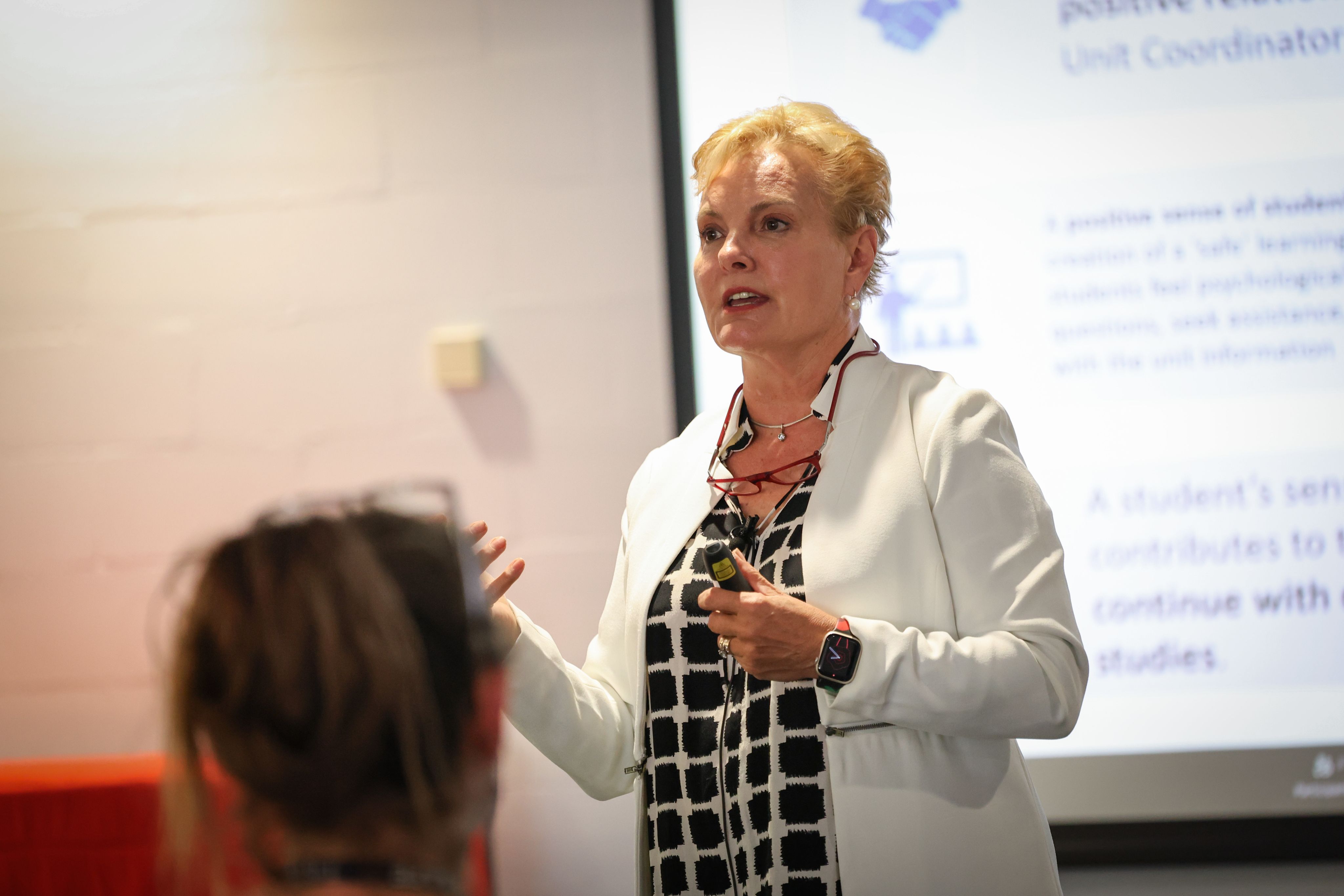
Step-by-step advice on how to create engaging content for learning units is available to unit coordinators in myLearn.
Step-by-step advice on how to create engaging content for learning units is available to unit coordinators in myLearn.
From 2025, the Commencing Student Success Project will become business as usual, with unit coordinators able to access step-by-step help to implement the program. It's available to all UNE unit coordinators on the CSSP MyLearn site. Learning designers across the university are available to help unit coordinators through the process.
For more information on the Commencing Student Success Project, contact Associate Professor Ingrid Harrington on iharring@une.edu.au
